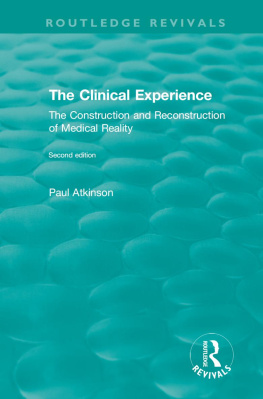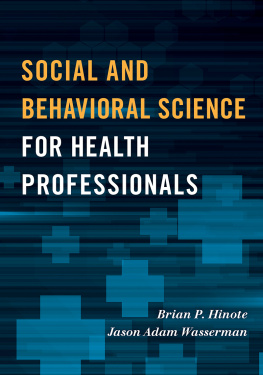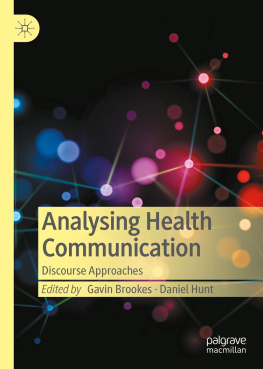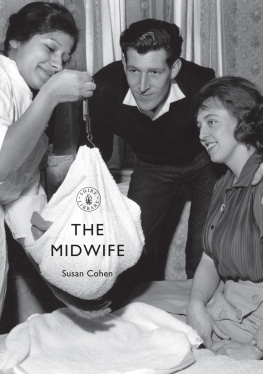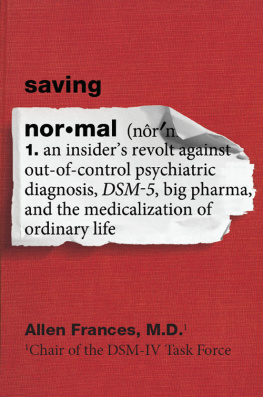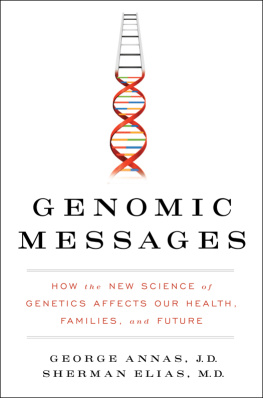
Reimagining (Bio)Medicalization, Pharmaceuticals and Genetics
In recent years medicalization, the process of making something medical, has gained considerable ground and a position in everyday discourse. In this multidisciplinary collection of original essays, the authors expertly consider how issues around medicalization have developed, ways in which it is changing and the potential shapes it will take in the future. They develop a unique argument that medicalization, biomedicalization, pharmaceuticalization and geneticization are related and coevolving processes, present throughout the globe. This is an ideal addition to anthropology, sociology and STS courses about medicine and health.
Susan E. Bell is A. Myrick Freeman Professor of Social Sciences/Professor of Sociology and Chair of the Department of Sociology and Anthropology, Bowdoin College. She is the author of DES Daughters: Embodied Knowledge and the Transformation of Womens Health Politics (Temple, 2009) and the guest editor with Alan Radley of a special issue of health, Another Way of Knowing: Art, Disease, and Illness Experience (2011).
Anne E. Figert is Associate Professor of Sociology at Loyola University Chicago. She is the author of Women and the Ownership of PMS: The Structuring of a Psychiatric Disorder (Aldine de Gruyter, 1996) and the co-editor of two volumes: Building Community: Social Science in Action (Pine Forge Press, 1997) and Current Research on Occupations and Professions, volume 9 (JAI Press, 1996).
Titles of Related Interest from Routledge
Health and Human Rights in a Changing World
Edited by Michael Grodin, Daniel Tarantola, George Annas, Sofia Gruskin
The Disability Studies Reader, Fourth Edition
Edited by Lennard J. Davis
Pain and Suffering
Ronald Schleifer
Sex/Gender: Biology in a Social World
Anne Fausto-Sterling
Depression: Integrating Science, Culture, and Humanities
Bradley Lewis
Autism
Stuart Murray
Reimagining (Bio)Medicalization, Pharmaceuticals and Genetics
Old Critiques and New Engagements
Edited by Susan E. Bell & Anne E. Figert
First published 2015
by Routledge
711 Third Avenue, New York, NY 10017
and by Routledge
2 Park Square, Milton Park, Abingdon, Oxon, OX14 4RN
Routledge is an imprint of the Taylor & Francis Group, an informa business
2015 Taylor & Francis
The right of the editors to be identified as the authors of the editorial material, and of the authors for their individual chapters, has been asserted in accordance with sections 77 and 78 of the Copyright, Designs and Patents Act 1988.
All rights reserved. No part of this book may be reprinted or reproduced or utilized in any form or by any electronic, mechanical, or other means, now known or hereafter invented, including photocopying and recording, or in any information storage or retrieval system, without permission in writing from the publishers.
Trademark notice: Product or corporate names may be trademarks or registered trademarks, and are used only for identification and explanation without intent to infringe.
Library of Congress Cataloging in Publication Data
Reimagining (bio)medicalization, pharmaceuticals and genetics : old critiques and new engagements / edited by Susan E. Bell & Anne E. Figert.
p. ; cm.
Includes bibliographical references and index.
I. Bell, Susan E., editor. II. Figert, Anne E., editor.
[DNLM: 1. Medicalization. 2. Drug Industrytrends. 3. Drug Therapytrends. 4. Genetic Phenomena. WA 31]
RS380
338.476153dc23
2014033649
ISBN: 978-1-138-79370-5 (hbk)
ISBN: 978-1-138-79371-2 (pbk)
ISBN: 978-1-315-76092-6 (ebk)
Typeset in Minion Pro
by Keystroke, Station Road, Codsall, Wolverhampton
Contents
PETER CONRAD
SUSAN E. BELL AND ANNE E. FIGERT
Part I
Reimaginings: (Bio)Medicalization and Technoscience in the Twenty-First Century
SUSAN E. BELL AND ANNE E. FIGERT
ELLEN ANNANDALE AND ANNE HAMMARSTRM
JANET K. SHIM, KATHERINE WEATHERFORD DARLING, SARA L. ACKERMAN, SANDRA SOO-JIN LEE AND ROBERT A. HIATT
REBECCA M. HERZIG
Part II
Pharmaceuticals
JEREMY A. GREENE
ARI SAMSKY
COURTNEY A. CUTHBERTSON
MATTHEW E. ARCHIBALD
Part III
Genetics/Genomics
CATHERINE BLISS
RUHA BENJAMIN
SARA SHOSTAK AND MARGOT MOINESTER
DAVID K. HECHT
SUSAN M. REVERBY
Foreword
Nearly forty years ago when I was in the midst of writing my PhD dissertation, Identifying Hyperactive Children, as a deviance-labeling study, a colleague of mine suggested I read an article by Irving Kenneth Zola on Medicine as an Institution of Social Control. This article introduced me to the term medicalization, creating a huge intellectual a-ha; yes, thats what Im studying, the medicalization of deviant behavior. This article, published in a modest British sociological journal, changed the analytic focus of my dissertation, reshaped the trajectory of my career, and in significant ways helped to broaden the horizons of medical sociology. This volume, so many decades later, reflects on how issues around medicalization have developed over the years and, perhaps more importantly, examines ways in which it is changing in the present and likely in the future.
As explicated in this volume there are numerous ways medicalization and related concepts are formulated. As a point of departure, in its most basic common-sense form it means to make medical. A more formal definition sees medicalization as the process by which previously nonmedical problems become defined and treated as medical problems, usually as diseases or disorders. The emphasis in this perspective is on process and definition. Without going into great detail here, I want to present what I see as five major characteristics of medicalization. (1) The definitional issue is key to medicalization, i.e., how a problem is defined is key to what is done about it. (2) There are degrees of medicalization; some problems are fully medicalized, some partly medicalized and others barely medicalized. There can be contestation and disagreement about a problems medicalized status. (3) Medicalized categories are elastic and can expand or contract. (4) Physician or other medical personnel involvement in medicalization is variable; sometimes medical professionals are essential to medicalization, sometimes they are marginal or even nonexistent. (5) Medicalization is bidirectional, i.e., there can be demedicalization as well as medicalization. In my view, medicalization research does not adjudicate whether or not an entity is really a medical problem, but rather how it became to be depicted (and accepted) as a medical problem and with what consequences. While some authors in this volume may contest some of these characteristics, all would probably agree that over the past four decades there has been much more medicalization than demedicalization and this also makes this volume significant and timely.
Some critics often conflate medicalization with overmedicalization and use the term almost as an epithet. They work from the assumption that medicalization is a bad thing. But it is easy to come up with examples where medicalization has had positive effects, e.g., epilepsy as a disease not a curse and, most recently, treatments for chronic pain. The authors in this volume avoid this trap, by examining the processes and consequences of medicalization (and its related concepts). Analysts like the ones contributing to this volume consider issues like genetics or race as social scientists would examine any social phenomena. What makes the big difference here are the various conceptual tools they use to render their scholarly examination.


